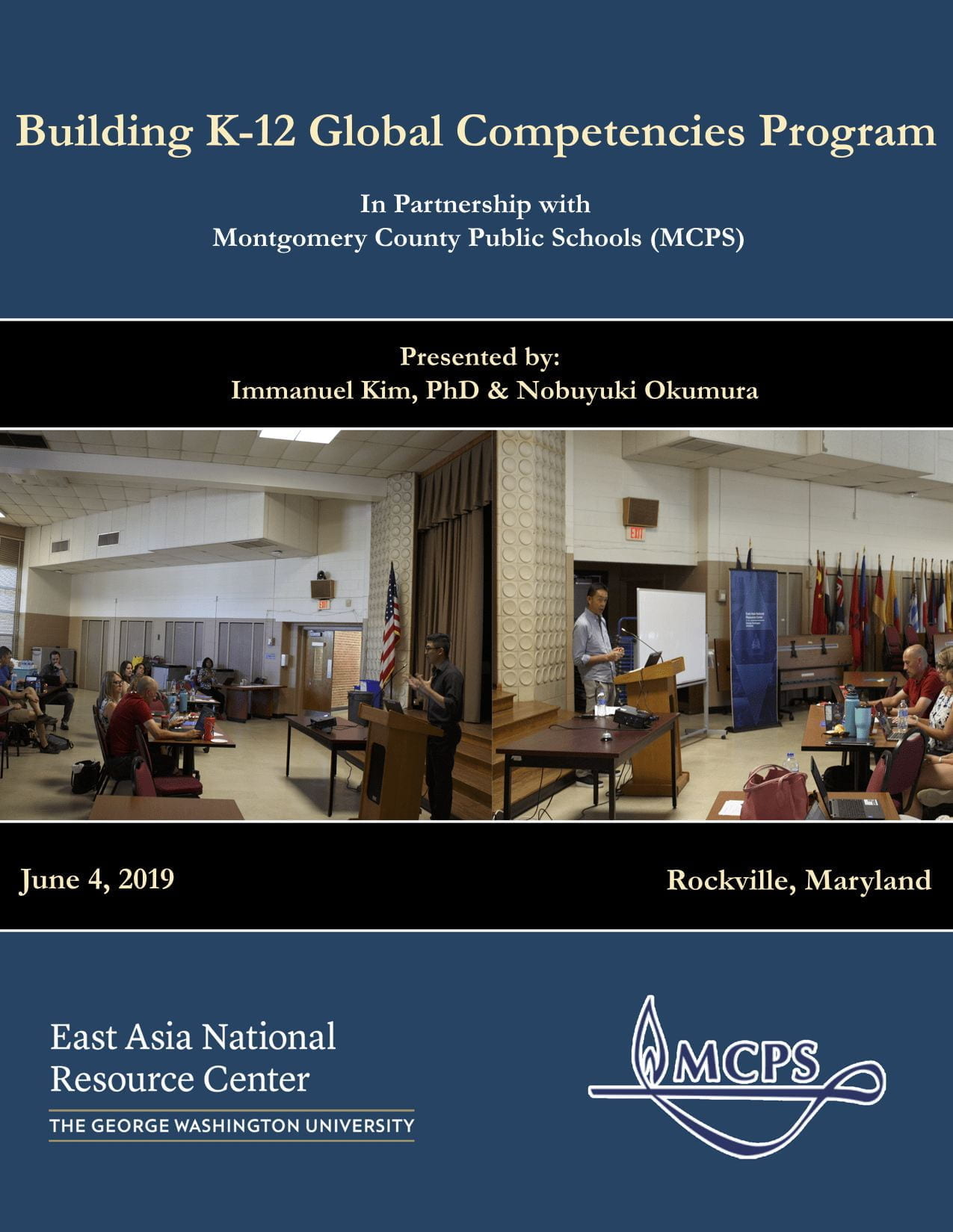This page serves as the repository for the content discussed at past teacher training workshops. Please feel free to look through the individual publications listed here to find out how our workshops are conducted. For past participants of the workshops, this page may be useful in acquiring recapitulated texts of the specific discussions for recollection purposes.
Building K-12 Global Competencies Program: In Partnership with Montgomery County Public Schools (MCPS)
Description: The Korean War, or the Victorious Fatherland Liberation War as North Korea call sit, was arguably the most traumatic moment in modern Korean history. The DPRK insists that the Americans started the war and proudly asserts its victory over the Americans at the end of the war. Despite the air of triumph in national discourse, North Korean literature has been accentuating the harrowing experience of the war, keeping the nation in “a constant state of emergency.” Literature has shown that the historical event puts the country in the state of emergency and requires are defined devotional connection with the leader. Such publication of war stories in North Korea is the ideological trajectory that creates, unites, and solidifies collective memory to persist in the present. However, starting from the 1980s, literary representations of the war shift from a unifying state discourse to individual memory that questions or even undermines the prevailing political ideology. Infact, war in literature is not the only theme that questions, disrupts, and subverts state discourse. Family problems, marital disputes, workplace problems, and gender inequality are but a few other themes that emerged in the 1980s to show a more dynamic literary landscape in North Korea. In the end, North Korea literature goes beyond a simple formulaic plot line of characters revering the leaders, Party, and state ideology.
Speaker: Immanuel Kim, PhD and Nobuyuki Okumura

EAST ASIA NATIONAL RESOURCE CENTER
Join Our Mailing List
Receive news and updates about EANRC events.


